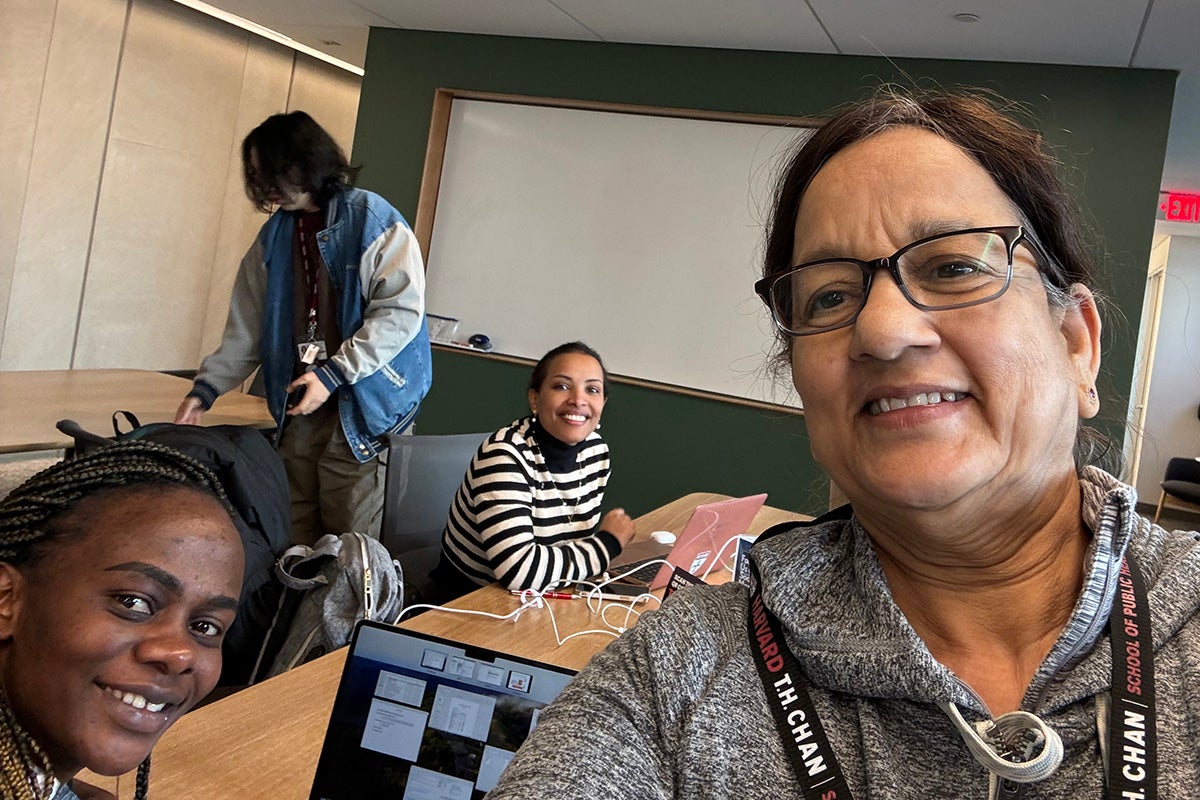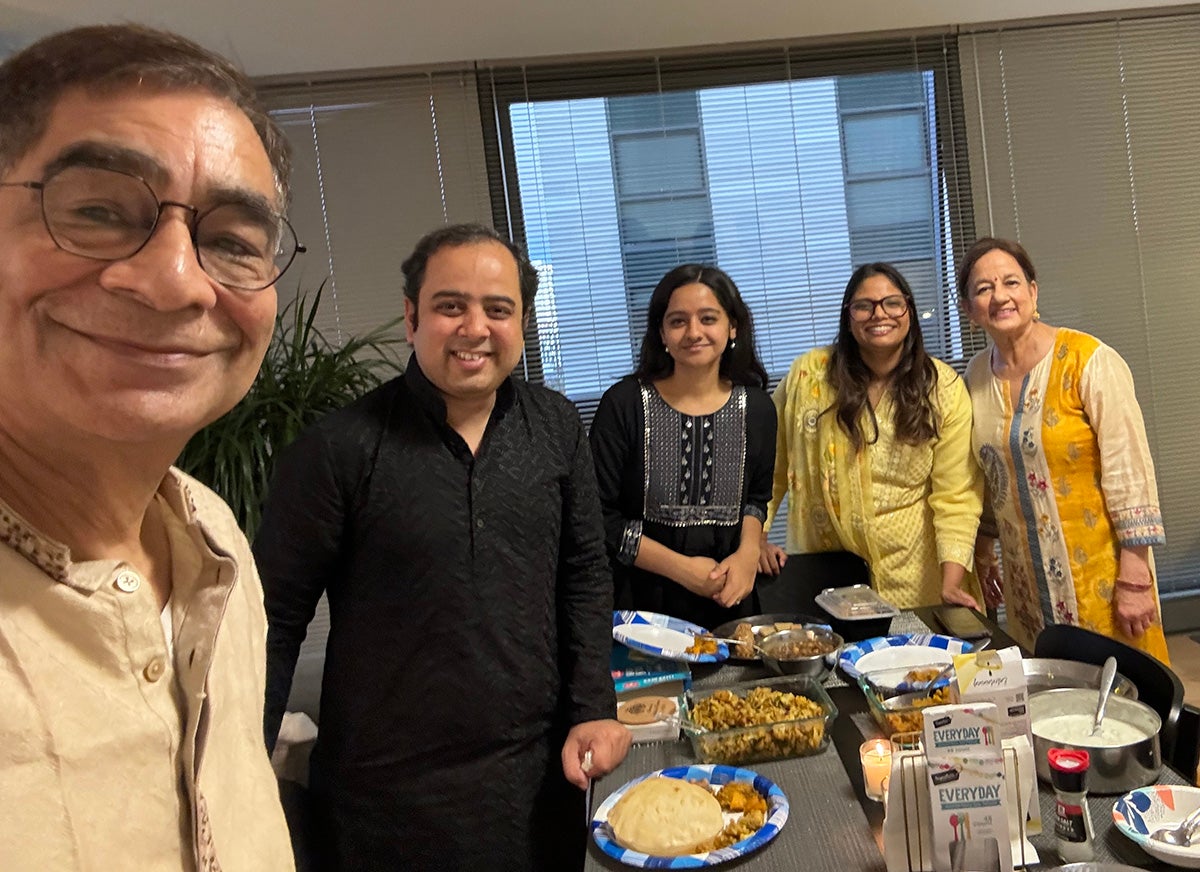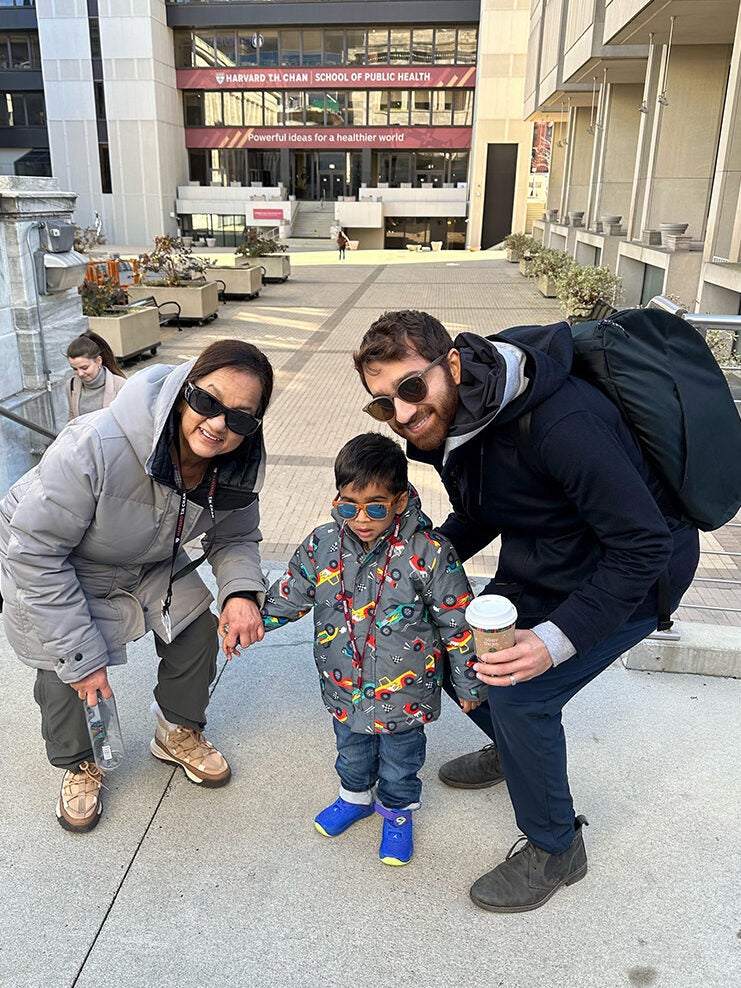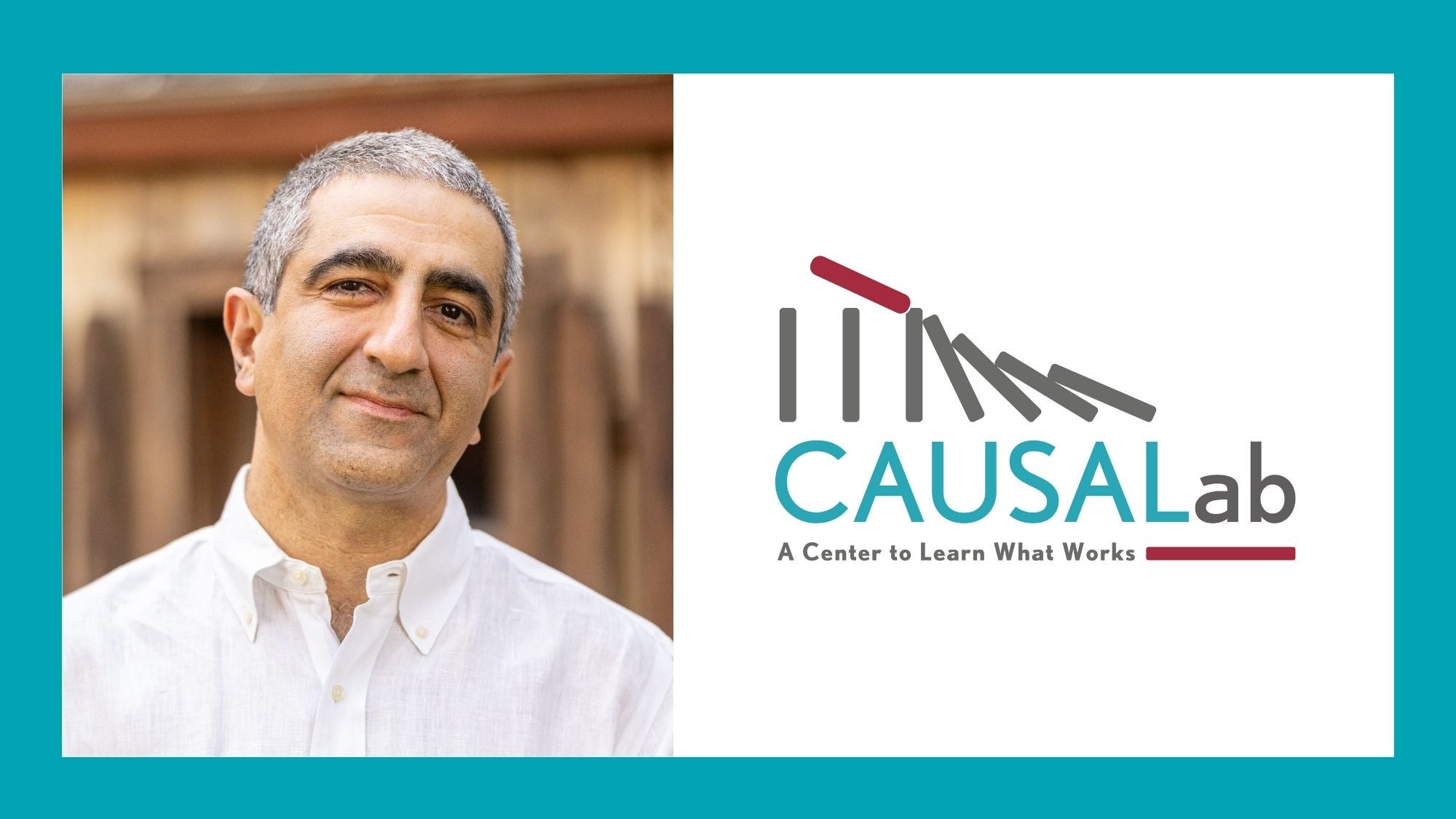Nearly five decades after medical school, new grad tacks on MPH degree

It wasn’t easy but Nalini Rohatgi, MPH ’25, hit the books again to learn more about the troubling health inequities she observed over the years as a clinician.
In the fall of 2023, Nalini Rohatgi—at age 67—arrived on campus to begin an MPH program at Harvard T.H. Chan School of Public Health. It had been decades since Rohatgi, a practicing physician, had last been in a classroom and she acknowledged it was a difficult transition. Initially, she said, her typing skills were limited, as was her knowledge of computers. “I didn’t even know how to take a screenshot,” Rohatgi said.
Then other challenges piled up. Before the start of her first semester, on her way to attend a tour of Harvard’s Cambridge campus, she fell on a staircase and injured her right hand. She had to wear a brace for a month, which prevented her from taking notes. She didn’t realize—for four weeks into her first semester—that she was supposed to use Canvas, a web-based learning management system, to find required readings. She missed part of an important biostatistics lab that would’ve introduced Stata, a statistical software package that helps users manage, analyze, and visualize data. “By the time I learned it, it was almost the middle of the semester,” she said.
It all felt like too much. Rohatgi sought help from Anne Occhipinti, assistant dean for professional education in the Office of Educational Programs. She’d first met Occhipinti shortly after the semester began and had told her that some challenges were surfacing. Now, Rohatgi recalled, she told Occhipinti, “I can’t do this, I need to get away from this for couple of weeks or I may have to leave.”
Occhipinti suggested an alternative plan: that Rohatgi finish her semester-long courses, drop her shorter courses, and complete her studies the following fall. Rohatgi’s two adult children, her daughter Pooja and her son Poorav, also encouraged her to stay. “They said, ‘Mom, if you leave, you will be so unhappy with yourself, but do whatever is comfortable for you,” Rohatgi recalled. “I said, ‘OK, I won’t leave.’”

Luckily, things got easier. “The whole of 2024 was so much nicer for me,” Rohatgi said. “I had more time. I understood better how to navigate Canvas and other web-based systems. I learned typing, how to better use the computer and applications such as PowerPoint, and even how to make a website.”
Said Occhipinti, “Honestly, it’s been so inspirational to see Nalini earn her MPH.” Even though it’s not common for people to come to the School for an MPH at later stages in their careers, Occhipinti said, graduate school can sometimes be just the ticket if they want to switch gears. “And Nalini’s experience prior to coming to the School only further enriched our classrooms,” she said.
Learning curve
Overcoming challenges was nothing new to Rohatgi. She grew up in a lower middle-class family in Agra, a small city in India. Her mother, who didn’t have much formal education but was very intelligent, wanted things to be different for her children. “She told us, ‘You are not going to do any housework. Just concentrate on your studies,’” Rohatgi recalled.
Through 8th grade, Rohatgi’s education had been conducted primarily in Hindi, the native language in Agra. In 9th grade she went to a different school, where classes were taught in English. “I had very poor knowledge of English, so I failed my first test,” Rohatgi said. “That was really devastating for me. So I worked with another girl in my class to learn grammar. We both worked very hard, and in 10th grade we aced the state board exam in the state of Uttar Pradesh.”
After completing high school, Rohatgi got accepted at India’s most prestigious medical school, All India Institute of Medical Sciences in Delhi. But she faced further hurdles there. “It was culture shock for me to come from a small city to the capital of India,” she said. “I was surrounded by very polished people who all came from educated, wealthier families.” She also didn’t know conversational English when she started medical school and had to learn it on the fly while also keeping up with her medical studies.
Troubling health inequities
After earning her medical degree, Rohatgi did an internship and a residency in pediatrics, rotating through several rural villages in India. She was struck by the health inequities she saw. “Health care was so poor,” she said. “Children were dying of malnutrition and infections such as diarrhea. It shook me.”
Rohatgi got married in India and, when her husband, a physician, had the opportunity to move to the U.S. for an internal medicine residency and cardiology fellowship, she came too. She did residencies in Newark, N.J., and Farmington, Conn., and a fellowship in allergy and immunology at the National Jewish Hospital and Research Center/National Asthma Center (now known as National Jewish Health) in Denver, Co. From 1987 to 2022, she had a private medical practice in Tampa, Fla., specializing in allergy, asthma, and immunology. She also volunteered for 14 years at a community health clinic, serving mostly Spanish-speaking patients who lacked insurance or other means to pay for health care.
Rohatgi encountered health inequities in the U.S., too. They were different from those she’d seen in India but similarly troubling. In Newark, her patients dealt with problems such as lead poisoning and domestic violence. In Tampa, some of her patients lived in poorly maintained buildings that had cockroaches and mold, which exacerbated the allergies and asthma that she was treating them for.
Rohatgi was frustrated by seeing how her patients’ life circumstances contributed to their health problems and wanted to address those issues on a broader scale. She shared her frustrations with her son and daughter. With their encouragement, she took a big step: She retired in March 2022 and applied to Harvard Chan’s MPH-45 program. “I knew what it was like working one on one with patients,” Rohatgi said. “I wanted to know what a bigger platform would look like.”
‘I have never given up in my life’
Rohatgi thoroughly enjoyed the company of younger classmates at the School, as well as her classes. She also noted the help she received from her academic advisor, Clyde Lanford (Lanny) Smith. “I really appreciated Lanny’s compassionate guidance,” she said.
Her favorite courses included one on public health policy and politics with John McDonough, professor of the practice of public health, a society and health course taught by Ichiro Kawachi, John L. Loeb and Frances Lehman Loeb Professor of Social Epidemiology, a global mental health course with Vikram Patel, professor in the Department of Global Health and Population, and a class on advocacy and organizing for health policy taught by Amy Rosenthal. Rosenthal is an instructor in the Department of Health Policy and Management and executive director of Health Care for All, which aims to bring high-quality, affordable, and accessible health care across Massachusetts. Rohatgi loved Rosenthal’s energy and learning about advocating for better health care for everyone. “That’s really important to me,” she said.

She hopes to do some advocacy work herself, such as exploring opportunities to work with NGOs in the U.S. and India, and writing op-eds. In addition, she’s thinking about developing programs for schools and inner-city populations, in Tampa and beyond, on topics such as mindfulness, asthma, nutrition, and teen health. Not full-time, though. “I have five grandchildren,” she said. “I’ve already taken a year and a half away from everybody.”
Rohatgi finished the coursework for her MPH, with a focus on social and behavioral sciences, in December—one semester later than planned—and will participate in graduation ceremonies in May 2025. She’s very glad that she stuck it out at Harvard Chan School after her wobbly first semester. “After all,” she said, “I have never given up in my life.”
Photos courtesy Nalini Rohatgi


